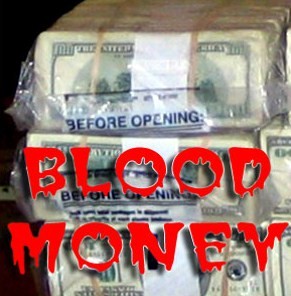Eritrea readies first goldmine
 Eritrea, one of the most closed corners of Africa, has said its first goldmine will begin production next year as the impoverished country races to develop.
Eritrea, one of the most closed corners of Africa, has said its first goldmine will begin production next year as the impoverished country races to develop.
Its dictatorial ruling regime, which is in urgent need of dollars from mining, has also awarded exploration licences to eight new foreign companies eager to prospect close to Africa’s Red Sea coast.
....
In a break from its credo of self-reliance, the regime of President Isaias Afewerki has turned to foreign companies for capital and expertise to develop its gold, zinc and copper deposits.
The first commercial production is due to begin in the third quarter of next year when the Bisha mine opens on a site in western Eritrea that contains nearly 1m ounces of gold, said Alem Kibreab, director-general of mines at the Ministry of Energy and Mines.
Bisha is being developed by Nevsun Resources, a junior mining company listed in Toronto, which has a 60 per cent stake in the project. The remaining 40 per cent is held by Eritrea’s state-owned mining company. Beneath its layer of gold the site has about 700m pounds of copper and 1bn pounds of zinc.
The eight companies awarded new exploration licences this year include Andiamo Exploration and London Africa from the UK; South Boulder Mines from Australia; India’s Spice Metals & Minerals; and Zhongchang Mining of China. A total of 14 foreign companies are now in the country.
Eritrea is “highly prospective ground”, said Kevin Tomlinson, managing director of the mining practice at Thomas Weisel, an investment bank. “It’s in a very prolific geological corridor that runs from Egypt along the Red Sea, down through Sudan to Eritrea, and then to Somalia and the northern tip of Madagascar. That’s where a lot of the pharaohs’ gold came from,” he said.
Eritrea’s deposits are not likely to be larger than those in South Africa or the Democratic Republic of Congo, but income from royalties, taxes and new jobs could ease the government’s fiscal problems and spread more wealth among its 5m or so people, many of them living on the margins of survival.
The mineral resources were rendered inaccessible by conflict during a 30-year guerrilla struggle against Ethiopian rule, which eventually led to Eritrean independence in 1993.
Big mining companies such as Anglo American secured exploration licences after independence, but they quit Eritrea when a two-year border war broke out with Ethiopia in 1998. They have not returned.
“After 2000 we remained with the juniors, and frankly I don’t regret it because they are the ones who go aggressively for discovery,” said Mr Alem. “But the problem is, when they make a discovery they need the finance.”
The Bisha project was delayed by the effects of the credit crunch, but in July Nevsun said it had secured a $235m (€161m, £143m) loan package from seven institutions in Europe and South Africa, which will fund the project through to production.
The Eritrean government secured a separate loan of about $80m from China’s Exim Bank to raise its stake in Bisha from 10 per cent to 40 per cent.
Eritrea’s second most advanced mining project, Zara, is moving ahead after its majority shareholder, Sub-Sahara Resources of Australia, was rescued from a liquidity crisis in a takeover by Chalice Gold Mines. It is to begin production in 2011 or 2012, yielding nearly 1m ounces of gold.
Copyright The Financial Times Limited 2009. You may share using our article tools. Please don't cut articles from FT.com and redistribute by email or post to the web.
Source ft.com


![[AIM] Asmarino Independent Media](/images/logo/ailogo.png)